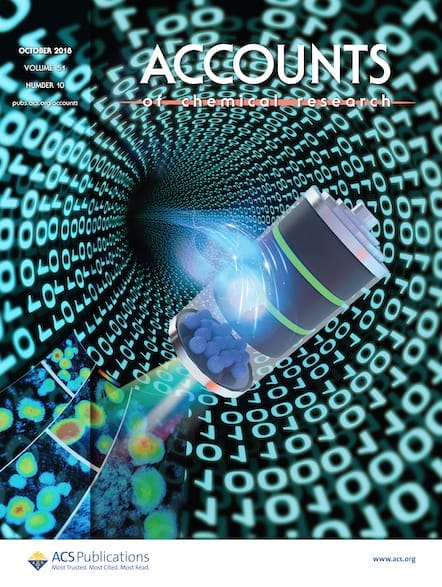February 11 is the UN International Day of Women and Girls in Science. To celebrate, we asked Editors of ACS journals: “What advice would you give to women just beginning their careers in science?

February 11th is the UN International Day of Women and Girls in Science. To celebrate, we asked Editors of ACS journals: “What advice would you give to women just beginning their careers in science?” See their answers below:
Ann-Christine Albertsson, Editor-in-Chief of Biomacromolecules
“My best advice is to increase the knowledge in the field that interests you. Consider taking part in the scientific discussion with your competitor. In addition, it is key to read and write, as well as keep a foot in the lab.”
Carolyn Bertozzi, Editor-in-Chief of ACS Central Science
“Chart your own path that embodies your interests and personality, and don’t listen too closely to others’ advice!”
Cynthia J. Burrows, Editor-in-Chief of Accounts of Chemical Research
“My advice: Always work on important problems!”
Sharon Hammes-Schiffer, Editor-in-Chief of Chemical Reviews
“My advice is that you should choose a field of science that inspires you and identify projects that you are passionate about. You should not feel restricted or constrained by your graduate and postdoctoral work or by the current trends in the field. Instead, you should have the courage to pursue original ideas that are off the beaten path and create your own niche when possible. Then science will be much more fun and intellectually fulfilling!”
Françoise Winnik, Editor-in-Chief of Langmuir
“Prepare for the future: dig deep into your topic and know your field. Be fearless, but wise, and do not give up!”
Shana J. Sturla, Editor-in-Chief of Chemical Research in Toxicology
“Cultivate your own mentorship. Being mentored is so important throughout your career, but it is only in rare cases that you are automatically connected with a person who can give you great advice about everything. Tackle this issue by seeking out direct personal connections with scientists and asking for guidance. Often this means connecting with different individuals located in different places on diverse aspects of your development as a scientist.”
Gunda I. Georg, Editor-in-Chief of Journal of Medicinal Chemistry
“Follow your talent and dreams.”
Cornelia Bohne, Editor-in-Chief of ACS Omega
“The professional environment is always changing and the specific good advice I received decades ago may not be applicable today. For me what has not changed was the advice to keep my career goals in mind during times when I am dealing with lots of different challenges. Choose mentors who help you navigate the ‘system,’ but who also challenge you to achieve your goals. Especially when feeling overwhelmed or frustrated, I remind myself that I chose my career because of my love of educating and solving puzzles of unknown scientific problems. At some point, started mentoring others, but I never stopped seeking out mentors for myself.”
Laura L. Kiessling, Editor-in-Chief of ACS Chemical Biology
“Look for a partner that supports your aspirations—someone that can be proud of your accomplishments.”
Alanna Schepartz, Editor-in-Chief of Biochemistry
“You’ve chosen a path that can offer a truly incredible life. No boss (at least not really!) and a chance to interact with, learn from, and mentor a virtual sea of smart, dedicated, creative, and enthusiastic young scientists and colleagues. There will be endless requests for your time and energy, but you have to get your work done. Always. No matter what. And be as brave as you possibly can as you choose projects. That’s the advice I received when I started my career at Yale, and it’s still useful today.”
***
Laura L. Kiessling, Editor-in-Chief of ACS Chemical Biology, recently had a podcast interview with Jennifer Doudna of CRISPR fame. Enjoy an advance excerpt:
LLK: That’s great. So let me ask about that. Your CRISPR work involves a lot of other women collaborators, right? Starting with Jill [Banfield, UC Berkeley].
JAD: I’m so proud of that.
LLK: I know! Yeah, what do you think about that?
JAD: It was not intentional!
LLK: That’s kind of cool; it just worked out that way?
JAD: I picked the best scientists and they turned out to be women. What can I say? […] It’s just such a delight when one is working on your problem of interest and your laboratory, and a collaborator shows up who is a fabulous scientist and just so happens to be a woman who has faced some of those challenges and has clearly been able to figure it out. It’s sort of the feeling of being on a road that is traveled by people who are going through some of the same things. They have different life experiences, but you have this shared aspect to your journey that enriches the relationship.
Want the latest stories delivered to your inbox each month?

Accounts of Chemical Research
Read our latest issue. Want to contribute to this journal?